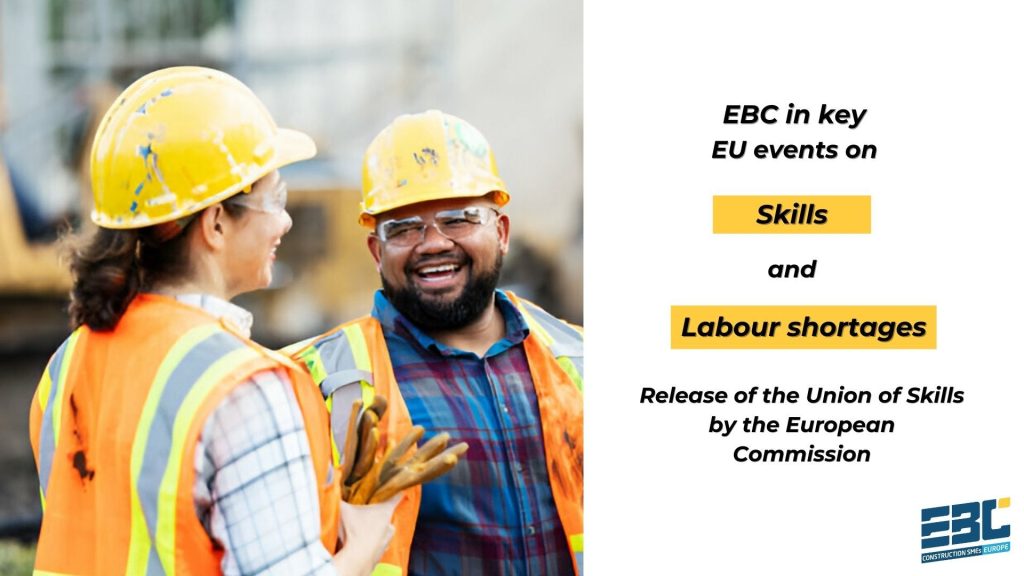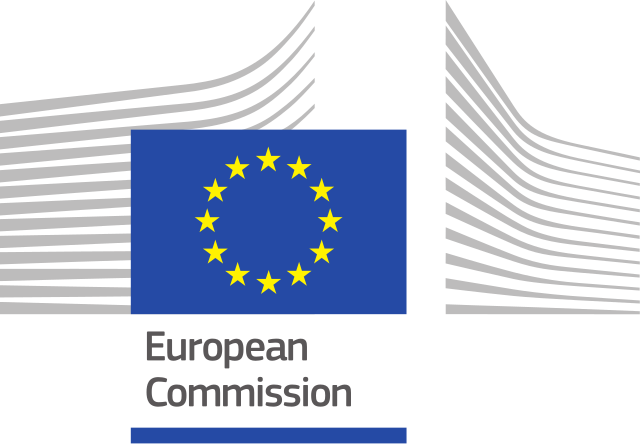
Skills: Release by the Commission of the Union of Skills, with labour shortages and skills needs in the construction sector still high in the political agenda
March 18, 2025
In March, EBC actively participated in several high-level meetings and events dedicated to skills development, vocational education and training (VET), upskilling, and reskilling in the European Union. These discussions took place at a crucial moment, as the European Commission adopted the Union of Skills communication, an initiative designed to address key challenges such as skills shortages, evolving labour market demands, and the need for stronger governance. Its objectives include delivering higher levels of basic and advanced skills, providing opportunities for continuous learning, facilitating recruitment across the EU, and attracting and retaining top talent in Europe.
On 5 March, EBC participated to the meeting dedicated to VET and Youth of the European Sectoral Social Dialogue Committee in Construction (SSDC), the first meeting of the Committee in 2025. During the meeting, DG Employment presented the Union of Skills adopted that same day, outlining its role in addressing skills shortages, particularly for SMEs. Discussions also covered the Pact for Skills in Construction, coordinated together by FIEC, EBC and EFBWW, and the Construction Blueprint 2 project, coordinated by the Spanish paritarian Institute Fundación Laboral de la Construcción, also counting with the participation of the European social partners for construction. The Pact wants to bring visibility to initiatives aiming at upskilling workers, introducing innovative training methodologies, and strengthening collaboration between businesses and VET providers. The role of Erasmus+ for apprenticeships was also examined, emphasising the need to enhance cooperation with VET providers and make apprenticeships a more standardised feature in the construction sector. Lastly, the meeting addressed the growing need to make the industry more attractive, particularly by increasing women’s participation in construction. EBC notably presented initiatives by its members Bouwunie and CAPEB on women’s inclusion and female leadership in construction.
On 6 March, EBC joined the Social Partners Knowledge-Sharing Conference on Skills Development, which launched a broader initiative within the European cross-sectoral social partners’ project on ‘Improving Skills Matching’. Representatives from employers and workers’ organisations across the EU discussed strategies to strengthen social partners’ role in education and training policies, improve the recruitment of skilled workers, and create better conditions to facilitate worker transitions through upskilling and reskilling. A key theme of the discussions was the role of SMEs, which, due to their smaller size, often lack the resources to engage in large recruitment campaigns or organise in-house training programmes. Compared to larger companies, the cost of training is proportionally higher for SMEs, making it essential to develop policies that better support their needs.
Finally, on 7 March, EBC attended the Stakeholder Seminar on Talent Shortages in the EU, co-organised by the European Commission and the OECD. The OECD presented two research reports: Understanding Skill Gaps in Firms, which analysed the mismatch between skills supply and industry needs, and Understanding Labour Shortages, part of the OECD Economic Outlook 2024, which examined broader labour market imbalances. The seminar concluded with a panel discussion on effective policies to ensure Europe remains competitive by developing the right skills for the future.
Looking for solutions to the structural labour and skills needs in construction is a long-standing priority of EBC, as without a sufficient and qualified workforce none of the ambitions for the sector will be reached.
For more information, please read the EBC position paper on labour and skills needs in the European construction sector (2024)

Projects
Partnerships
